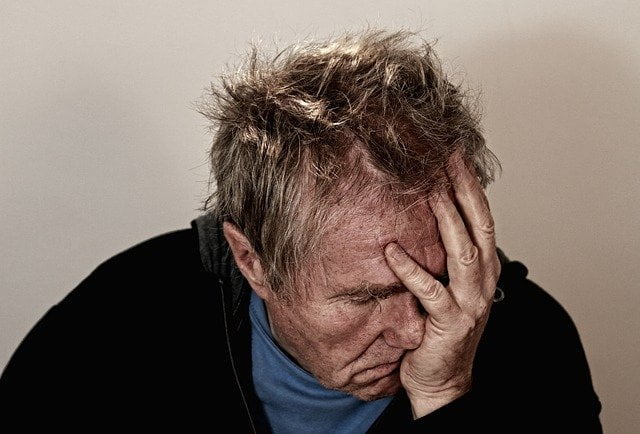The Myth of One Last Time
We’ve all heard the famous line ‘one last time’ come out of our mouths, or the mouths of loved ones, when we are preparing to give up something we know is bad for us.
Whether it’s one last bite of the cake, one last drink or one last hurrah when we engage in the habits that we know are causing us harm, the ‘one last time’ myth has been perpetuated for years as a mythical final adventure to satisfy our cravings once and for all.
However, it never really works out that way. But why?
In this article we will be delving into the psychology of the ‘one last time’ mentality, seeing why it never seems to work and what the alternatives are to one last hurrah.
Why We Want One Last Hurrah

Breaking habits can be a challenge, and that challenge only gets more difficult if the habit we have has formed into a dependence or an addiction.
When we think of our lives without the thing which we enjoy and is part of our everyday routine, it can be scary to imagine never doing that thing again, whether it be consuming a certain food, drinking alcohol or taking a drug.
The ‘one last time’ mentality lulls us, therefore, into a false sense of security whereby we feel as though if we do it ‘this one last time’ we can get it out of our system and be satisfied never to do it again. Of course, this doesn’t work, because all it really does is put off crunch time when we need to give up the thing we need to give up.
When it comes to alcohol and drugs, giving these up is made much more difficult and much scarier when we become addicted to these substances. Whether a psychological addiction, physical addiction or heavy dependence, we also engage in the habit we know we should give up because doing without it is so unpleasant.
Facing cravings, withdrawals and the unknown through a life without the substance we depend on can be so hard that it is easier to keep putting off.
Often substances are also often used to cover up or manage other mental health issues, to run away from problems or to give ourselves a psychological escape. This further adds to the anxiety around finally putting a stop to taking the substance (drugs and/or alcohol).
So, the ‘one last hurrah’ mentality seeps in to try to reassure ourselves that we can ‘quit tomorrow’, that we don’t need to face the fear of never taking this chosen substance again and that we can satiate our desire to engage in this habit one last time.
How ‘One Last Time’ Becomes So Much More

The problem with the ‘oe last time’ mentality is that it never is simply ‘one last time’.
Due to the nature of habit and addiction, after that ‘one last time’ we are never actually satisfied and still long, perhaps even more so, for the substance/s that provided that comfort during the ‘last time’.
Even if that ‘last time’ wasn’t as great as we would have hoped it to be, the strong desire to relive that last time over and over is still there. Whether it’s to trick ourselves into thinking we need one last good night for it to count, or whether we want to relive the joy of that ‘last time’.
Therefore, last times become second to last or third to last or fourth to last times, and this can go on and on until that first ‘last time’ seems like a distant memory.
The myth of the ‘one last time’ is a myth that people tell themselves which is similar to the ‘I’ll do it tomorrow’. It provides us with a false sense of comfort in the moment, that we are engaging in something we know we want or need to give up, but this is the last time so it is okay to keep doing it.
It is a problem for your future self rather than your current self and therefore can be dismissed as a worry. However, when the future sneaks up on us, that last time is never ever enough.
How Substance Use Affects the Brain

Psychoactive substances such as alcohol and drugs are named as such due to their effect on the brain. They impact key mental processes such as cognition, perception, thoughts, emotions, awareness and behaviour. [1]
Because of this, the ‘one last time’ mentality can be incredibly difficult.
The psychological impact of substance both whilst intoxicated and following intoxication can influence decision-making behaviours, risk taking behaviours, thoughts and emotions and therefore it can be challenging to know if during or after your ‘last time’ you will be able to abstain from any more ‘last times’
When it comes to long-term substance misuse, this is made even more difficult. This is because of the long term effects that prolonged alcohol and/or drug misuse has on the brain, such as increasing the desire for risk-seeking behaviours, impaired memory, reduced neuron size and impaired cognitive control. [2] [3] [4]
As the substance you are addicted to actively alters your brain, your impulses, emotions and your thought processes, it is even more difficult to maintain the idea of really taking the substance just ‘one final time’. Instead, your very own thoughts and emotions, which are being influenced by the substance, will be compelled to continue taking it.
The Reality of Addiction
Addiction (also known as Substance Use Disorder) is a chronic disorder whereby a person is compelled to continue consuming substances (e.g. drugs and/or alcohol) despite facing problems resulting from their continued substance-use. [5] [6]
The ‘one last time’ mentality could be an indication in itself that you are either in active addiction or developing an addiction. If you are unable to manage your intake of substances to the extent where you need ‘one last time’ before going sober, this may signify that you need professional addiction support.
There are several symptoms of substance use disorder, including:
- Having made repeated attempts to quit or reduce intake of substance/s but not being able to
- Having cravings and thoughts of substance/s when not taking them
- Spending a significant amount of time using drugs/drinking alcohol and/or dealing with the aftereffects (e.g. hangovers)
- Neglecting work/family/life commitments in order to partake in substance/s
- Financial, housing, employment or legal problems arising due to substance use
- Needing to drink more or use a greater quantity of drugs in order to get the same effect (building a tolerance to substance/s)
- Experiencing social, family or relationship problems due to substance use
- Experiencing physical and/or mental health problems due to use
- Experiencing withdrawal symptoms when not using substance/s
- Engaging in risky or dangerous behaviours due to substance/s (e.g. drink driving or risky sexual activities) [7]
One of the key symptoms of substance use disorder is if you have made repeated attempts to stop using substances in the past but have not been able to. When it comes to ‘one last time’, this symptom describes what many experience after their ‘last time’ is over.
Although it might seem easy to say that you can quit after one last time, the reality of addiction is that you are fighting an uphill battle against a substance that is altering the way you think, feel and behave.
The Dangers of ‘One Last Time’

The reality of addiction, and the reality of the ‘one last time’ mentality, should also not be underestimated in terms of how dangerous it can be. Depending on the substance/s you are consuming, there are real risks to your health when it comes to substance use as well as the ‘one last time’.
In fact, your ‘last time’ may be your last time, but not through choice. Many substances such as heroin and alcohol have the potential to be fatal, either by overdosing (or experiencing alcohol poisoning) or through severe withdrawal symptoms. [8] [9]
If you engage in your substance use for one last time, then there is a very real risk that you might feel like overdoing it, especially if you are dedicated to this being your ‘last time’. This could easily lead to an overdose or alcohol poisoning which can result in death.
If you take substances such as alcohol, and then decide to quit cold turkey the next day, then you could be vulnerable to severe withdrawal symptoms, particularly if you previously binged on it – some of which can result in death if not properly monitored. [10]
Whether you decide to engage in ‘one last time’ or not, it is vital that you stay safe and get professional support for your detox when you begin your journey to sobriety.
Even if you do not overdose or suffer severe withdrawal symptoms, the danger of ‘one last time’ may simply be that it gives you the psychological freedom to go far beyond what you have done previously.
This could mean drinking even more than usual and having an all out ‘binge’, taking new substances or simply taking more of the substances you are addicted to.
In this case, if you do not go into addiction recovery after this, then it could simply make your substance misuse even worse due to feelings of shame for not sticking to that session being your ‘last night’ and due to your body’s experience of having even more than before and desiring that again.
Getting Help for Your Addiction
If you are feeling worried that you won’t be able to face sobriety without that last time, then don’t worry, there are plenty of support options available to you so you do not have to face addiction recovery alone.
Drug and alcohol rehab is available for people struggling with substance misuse who want support through addiction recovery. There are several options including intensive inpatient programmes and less intensive outpatient addiction therapies, and the rehab professionals can help you find the right type of help for you.
Instead of attempting sobriety after a last substance use session, exploring rehab options will mean that you get all the support you need when you need it. This can include support through detox and help with withdrawal symptoms, help managing the psychological aspects of addiction and evidence-based treatments which can help you achieve long-term sobriety.
If you want to explore UK rehab options local to you, then explore our rehab location pages or contact a member of the Rehab Recovery team today to get started on the road to addiction recovery.
Overcoming ‘One Last Time’ Fears

One of the reasons that we cling onto the idea of ‘one last time’ is that we feel as though we will soon be missing something we enjoy, and don’t want to miss out on it forever so feel as though we owe it to ourselves to do it at least once more.
One essential step in the process towards sobriety is to recognise that being sober isn’t about giving something up, but rather gaining something. Think about your goals and what you can achieve without the substance you have become dependent on.
Consider what sobriety can bring to your life, what you will do with the extra time and money you will have, and how you can motivate yourself to stay sober without the need for a ‘last time’.
If you seek professional support from a local drug and alcohol rehab centre, then this can be a much easier road to travel than you might think. You can get expert help for your addiction recovery from people who know what you are going through and have supported others in addiction recovery to get, and remain, sober.
Alternatives to One Last Time
If the ‘one last time’ mentality doesn’t work, then what does?
Well, there are many other methods which have been used to help reframe the way we think when we approach giving up something we really do not want to give up.
When it comes to addiction, treatments such as Cognitive Behavioural Therapy, Motivational Interviewing and Peer Support Groups can be really helpful for supporting you in changing the way you approach sobriety.
Cognitive behavioural therapy focuses on your thoughts (cognition) and how you can recognise and challenge your thought patterns. For example, if you think ‘I will only have a drink one last time’ then you can recognise that thought and challenge it by questioning ‘why do I need this one last drink?’ or ‘how do I honestly think I will feel after this one drink?’
By examining your thoughts and reframing them, you can change the way you react to thoughts and in turn change your behaviour.
Motivational Interviewing and Motivation Enhancement Therapy can also be very useful in changing the way you approach the ‘one last time’ mentality. Motivational interviewing is all about focusing on your motivations for changing your behaviour, why you want to get sober and what you want to achieve beyond sobriety.
Motivational Enhancement Therapy is similar in that it uses these techniques within structured therapy.
This can be incredibly useful in pulling you out of the mentality that you are losing something by going sober, and can help remind you what you will be gaining instead. This in turn can reduce the anxiety around getting sober and can reduce the need for ‘one last time’.
Peer support groups, group therapy and self-help groups can also be very useful when you are falling into the one last time trap. In a group setting, you can meet others who are experiencing similar urges, cravings and fears as yourself, helping you to feel less alone and more capable of achieving sobriety.
Meeting others who likely have their own ‘one last time’ stories can help you see the reality of the ‘last time’, and find healthier ways to kick-start your addiction recovery journey.
Getting Your Life Back
The main take away from the myth of the ‘one last time’, is that you don’t need ‘one last time’ in order to get your life back on track.
Through alternative ways of approaching sobriety and addiction recovery, you can break free from the cycle of substance misuse and take your life back into your own hands.
It can be incredibly daunting to face a new life, and to feel as though we are giving up something that is such a key part of our lives. However, by seeing the new opportunities in a sober life and recognising what we have missed out on due to substance use, we can be motivated to seek out a new way of life even if it does seem scary at first.
Through professional addiction help, in the form of a course of inpatient drug and alcohol rehab or participation in addiction therapies such as cognitive behavioural therapy, we can get the support we need to overcome our substance dependence without the need for a final hurrah.
References
[1] World Health Organisation, Drugs (Psychoactive), https://www.who.int/health-topics/drugs-psychoactive#tab=tab_1
[2] Costa, Cobral, Hohl and Fontes (2019) ‘Rewiring the Addicted Brain Through a Psychobiological Model of Physical Exercise’, Frontiers in Psychiatry, https://www.ncbi.nlm.nih.gov/pmc/articles/PMC6718472/
[3] Gould (2010) ‘Addiction and Cognition’, Addiction Science and Clinical Practice, https://www.ncbi.nlm.nih.gov/pmc/articles/PMC3120118/
[4] National Institute on Alcohol Abuse and Alcoholism (2022) ‘Alcohol and the Brain: An Overview’, Alcohol’s Effects on Health, https://www.niaaa.nih.gov/publications/alcohol-and-brain-overview#:~:text=Alcohol%20makes%20it%20harder%20for,as%20reductions%20in%20their%20size.
[5] US Department of Health and Human Services (2016) ‘the Neurobiology Of Substance Use, Misuse, And Addiction’, Facing Addiction in America: The Surgeon General’s Report on Alcohol, Drugs, and Health, https://www.ncbi.nlm.nih.gov/books/NBK424849/
[6] American Psychological Association (APA), ‘Substance use, abuse and addiction’, Adapted from APA Dictionary of Psychology, https://www.apa.org/topics/substance-use-abuse-addiction#:~:text=Addiction%20is%20a%20state%20of,sex%2C%20exercise%2C%20and%20gambling.
[7] Hasin (2014) ‘DSM-5 Criteria for Substance Use Disorders: Recommendations and Rationale’, American Journal of Psychiatry, https://www.ncbi.nlm.nih.gov/pmc/articles/PMC3767415/
[8] World Health Organisation (2023) Opioid Overdose, https://www.who.int/news-room/fact-sheets/detail/opioid-overdose#:~:text=Opioids%20include%20heroin%2C%20morphine%2C%20codeine,overdose%20can%20lead%20to%20death.
[9] Canver, Newman and Gomez (2024) ‘Alcohol Withdrawal Syndrome’, StatPearls, https://www.ncbi.nlm.nih.gov/books/NBK441882/#:~:text=The%20following%20are%20common%20complications,in%20its%20most%20severe%20form.
[10] Darke, Larney and Farrell (2016) ‘Yes, people can die from opiate withdrawal’, Society for the Study of Addiction, https://onlinelibrary.wiley.com/doi/full/10.1111/add.13512




